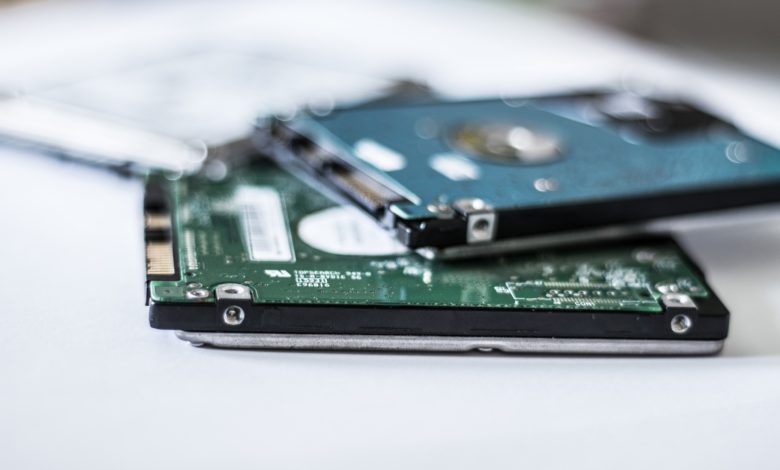HDD or SSD: Which One Should You Prefer?

HDD or SSD: In this article, we compare the most known basic storage units and explain which one you should choose.
Today, it is said that hard disks (HDD / Hard Drive) are abandoned almost everywhere, and solid state drives (SSD / Solid State Drive) are now standard. In fact, the war between these two storage units is still going on. Solid state drives have made a lot of difference in this war due to the speed they offer and the lack of mechanical parts, but there are still areas where hard drives are preferred. Again, due to the development of production technologies in direct proportion to many years, SSD drives have become quite cheap and easily accessible by the end user.
Almost for the price of the hard disk, although it is less in terms of storage space, it is possible to get an SSD that is enough for the end user when considering the speed. Nevertheless, hard drives are frequently preferred in computers for storage rather than active use. The fact that it offers more storage space at a more affordable price attracts users.
First Look and Impression
When you approach the situation from a different perspective, it is very difficult to imagine a computer without an SSD today. By writing new operating systems in accordance with SSDs, solid state drives meet the high IOPS and speed needs of the software to the desired extent. These storage units, which can be considered quite new in terms of hard disk technology, are now a favorite of many of us.
The development process of hard drives is much older than solid state drives. It has an interesting development of up to 20 TB today, since the massive hard disk (hard disk) that was produced in the 1950s, offering 5 MB of storage. Although hard disk technology is now thought to be dead, this is not the right approach.
When comparing two technologies or products, we need to look at multiple aspects, not one way. In this comparison, we should pay attention to cost, speed, size and reliability.
Cost and Speed
A good SSD costs an average of 9 cents per GB, while hard drives can average 2 cents per GB, or less in cost. This means that you can access more storage space cheaper with HDDs. However, when running today’s operating systems (for example Windows 10), HDD technology may be insufficient, high disk usage problems and slowdowns may be experienced.
SSDs are the ideal solution for installing operating systems and software. Operating systems and software installed on solid state drives open and react much faster than normal hard disk technology.
Due to the cheaper SSDs, we can now come across solid state drives in almost every laptop or desktop computer. Some manufacturers do not put hard drives directly in their models. Manufacturers generally allow users to install optional hard drives. For most desktop or laptop users, 1 TB SSD storage space is enough. Most laptop users that come with SSDs of lower sizes also have the opportunity to upgrade this later.
Portability and Reliability
When we look at the portable storage market, the situation is again not very different. It is possible to see many portable SSDs on the market that offer more speed and performance than an internal hard drive. It is not very suitable for people who are constantly on the move, due to the mechanical parts inside portable HDDs due to their nature. Your disc may get damaged during the journey in your bag or suitcase due to constant vibrations. Again, in the portable sector, SSDs seem to address this market as they are solid state disks that do not contain moving parts.
A New SSD Standard: NVMe
With the introduction of NVMe SSDs, which offer even more performance, IOPS value and speed compared to SATA SSDs, we can say that we are now slowly moving away from the SATA standard. To learn more about NVMe SSDs, you can read our article titled What is NVMe, what is its difference from SATA.
Increasing Size of Files and Storage Technologies
Until now, we have briefly mentioned the advantages of both storage technologies for each other in our article. Now we’re going to talk about increasing file sizes, games and the impact of this. As is known by anyone who acquires games from digital game services, modern and “AAA” productions can have huge dimensions. When it comes to an additional update to a 200 GB file, it is possible to come across games with more sizes.
When we look from the console front, both PS5 and XBOX Series X come with an NVMe SSD drive because of the high-dimensional and detailed textures and the speed of the HDD for graphics.
You may have heard that new powerful consoles will support games with higher graphics. Considering that an AAA game will be 100-150 or more on average, we think storage will become a serious issue for console players.
In the past, games with the size of 40-50 GB were available on our discs as an exception. Currently, any modern game takes up at least 10 GB. Luckily, you can get an average solid state drive (SSD) of 1 TB in the 1000-1500 lira band. This is still sufficient for most “regular” games, but we think your disc will still fill up quickly if you own games from the big producers.
Apart from all these, as you know, the only purpose of computers is not games and entertainment. For those who do not use a computer for this purpose, if the disk selection is used for backup and storage of some file / media content, other criteria are more prominent. We think that there is no need to buy SSD in high capacities for such uses. A low capacity SSD (such as 256, 512 GB) can be selected to install only the operating system and some required programs.
In this context, considering the structure and durability of new modern hard disks, we still see it as the most logical solution for data storage and backup. When the solid state drive on which valuable data is backed up breaks down (unless there are minor failures or damage), you generally have no chance of recovering that data. In HDDs, it is possible and easier to recover data from the damaged disk compared to SSDs. Because the hard disks write and read data on a rotating head through the motor while working, it is possible to recover valuable data with professional hands, even if the engine is broken or a head hitting problem occurs. Nevertheless, given their structure, you should not shake the hard disk you are backing up, or subject it to physical shocks.
Why is SSD faster?
Although there are many reasons why SSDs, ie solid state drives, are much faster than HDDs, the biggest reason is that there are no moving parts in them. Solid state drives, as they say, contain no moving parts, store data on NAND chips. Therefore, there is no negative former to the speed of writing the data to different parts.
Another factor is that since SSDs are made up of solid state chips, there is no need to defrag the disk to increase performance on hard disks. Because the data that should be in a certain section on the mechanical disks is written to different points, the head must constantly switch between sectors and the disk must rotate in order to read the data. As files are written and deleted, increasingly fragmented data in different partitions degrades performance. For this reason, if the hard disks are not defragmented at certain intervals, slowdowns will be seen when starting the operating system or opening software.
For hard drives, the speed of the disk depends on the rotational speed. Accordingly, we can say that a HDD with 7200 RPM speed is faster than a disk rotating at 5400 RPM. Unfortunately, even the best hard disk cannot keep up with the speed of SSDs.
For example, the boot time of a computer with a clean Windows 10 installed on a WD Black 4 TB HDD takes 20-30 seconds until it sees the Windows 10 desktop after BIOS POST. When tested under the same conditions with the lower model WD Blue 2 TB HDD, the computer can take 30-40 seconds to boot. This process results in a much shorter time in almost all SSDs.
Most computer users now use SSDs in their systems to save time and not wait for the tedious boot of the operating system and software.
Advantages of SSDs in Games
Since there is a continuous flow of data in the background when it comes to games rather than the startup time of an ordinary software or operating system, the use of disks made by other applications that run in the background with the game in storage units such as the classic hard disk will decrease performance. The importance of SSD is revealed in the opening / loading screens in the games and the parts where the cutscenes are loaded.
Games based on SSD open faster than hard disk, intermediate scenes load faster, and there are no problems with texture loading caused by the disk.
In the same example, good SSDs in Metro Exodus were best tested against hard drives with 7200 RPM rotational speed. In the tests performed on RTX 2080 Ti and i9-9900K based system, the installation process to Taiga partition on Metro Exodus, which is installed on WD Blue 1TB HDD, which is the slowest of the hard drives in question, took a little more than 48 seconds. WD Black, one of the best on the HDD side, lasted 40 seconds on a 2 TB disk.
On the SSD side, we see that the game opens almost halfway faster. In the test on Intel Optane 900P 480GB SSD, the Taiga partition was loaded in 22 seconds, while the WD Blue 3D 500GB SSD with the lowest speed tested by PCGamer loaded the partition in 33 seconds.
Again, the tests performed in Indie games revealed different results. Eight drivers were tested in the first episode of Life is Strange 2, a lightweight indie game. The fastest SSD took the lead by only 5 seconds ahead of the slowest hard drive. In light games released by independent developers of this type, the SSD obviously may not affect the loading speed as much as in the test. The main difference occurs in heavy games that require a higher system.
Result
It is an undeniable fact that SSDs are far ahead of hard disk technology. Both storage units are in operation today. Of course, you don’t have to choose just one of these two storage units. You can buy an SSD of appropriate size and install programs with an operating system that needs to be opened quickly and needs performance. The hard disks you will buy on your computer for storage and backup purposes are still the most logical solution as we mentioned throughout our article.
When we look at the corporate basis, when it comes to backup, high-sized hard disks are a more logical choice in terms of both cost and data recoverability.
Regardless, we think that it is essential to use SSDs, as disk usage requirements of operating systems and software have increased in every computer today. It would be best for you to choose one of the HDDs and SSDs according to your needs, taking into account the points we have mentioned in our article.





